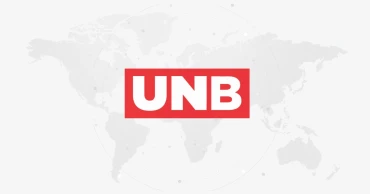German Embassy
How to Get a German Opportunity Card From Bangladesh
With its work-life balanced culture and high quality of life, Germany stands out as an attractive destination for Bangladeshis seeking professional opportunities. The thriving economy of the country, a member of the EU (European Union), offers excellent prospects for skilled workers. The recent introduction of the Opportunity Card has streamlined the process, making it a more structured and accessible pathway for qualified professionals. This article offers a comprehensive guide to obtaining the German Opportunity Card from Bangladesh, covering key details on eligibility criteria and application procedures.
What is the German Opportunity Card?
The Opportunity Card is a permit that allows skilled workers from countries outside the EU, EEA (European Economic Area), or Switzerland to enter Germany for employment purposes. As a residence permit, it is valid for up to one year, during which the cardholder must secure employment. To obtain the card, applicants must provide proper proof of eligibility for the relevant employment.
Who is Eligible for the German Opportunity Card?
The card is primarily issued to two types of citizens from non-EU, EEA, or Swiss countries:
1. Individuals with a fully recognized German professional or educational qualification:Applicants must have an educational or professional certificate recognized in Germany, either from a home-country institution recognized by Germany or from an institution located in Germany.
2. Those who are not yet established workers but meet specific conditions:Applicants must fulfill the following criteria:
- Hold an academic degree from a German university or a university recognized by Germany in their home country.
- Have completed at least two years of vocational training from an institution in Germany or one recognized by Germany in the home country.
- Demonstrate language proficiency: at least level A1 in German or level B2 in English according to the Common European Framework of Reference for Languages (CEFR). An IELTS score of 5.5 to 6.5 or a TOEFL IBT score of 72 to 94 is equivalent to CEFR level B2.
Read more: Free Education in Germany for International Students in Bachelor, Masters, PhD
German Opportunity Card Point System
Applicants under Category 2 must meet a point-based system to increase their chances of receiving the card. Achieving a minimum of six points is necessary. The points are distributed as follows:
Equivalence of Qualifications (4 points):
Four points are awarded if the completed degree or training is partially equivalent. For professions requiring a license, four points are given before licensure, but the license test must be passed before the residence permit is granted.
Eligibility for Shortage Occupations (1 point):
One point is awarded for degrees or vocational training in shortage professions in the German job market, such as mining managers, chemists, civil engineers, and software developers. A full list of shortage occupations can be found here:https://www.make-it-in-germany.com/fileadmin/1_Rebrush_2022/a_Fachkraefte/PDF-Dateien/3_Visum_u_Aufenthalt/2024_Mangelberufe_EN.pdf.
Professional Experience (2 to 3 points):
Two points for at least two years of relevant professional experience within the last five yearsThree points for at least five years of experience within the last seven years.
Language Proficiency (1 to 4 points):
One point for A2-level German proficiency, two points for B1, and three points for B2 or higher.An additional point is given for C1-level English proficiency or if the applicant is a native speaker.Age (1 to 2 points):
- Applicants under 35 receive two points- Those who are aged 35 to 40, receive one point.
Residence Record in Germany (1 point):
One point is given for having legally lived in Germany for at least six months in the past five years, regardless of the purpose (study, work, or travel).Spouse as a Skilled Worker (1 point):
If one spouse meets the Opportunity Card criteria, the other spouse receives one point.To check eligibility before starting the final application, visit the following link:https://www.make-it-in-germany.com/en/visa-residence/self-check-opportunity-card#c52628.
Read more: Higher Study in Germany: Scholarship Opportunities for Bangladeshi and Other International Students
Benefits of the German Opportunity Card
This card initially allows the holder to find work in Germany for a maximum of 1 year. After this period, the card can be extended for up to 2 additional years while staying in Germany. Cardholders can pursue employment or self-employment opportunities. This permit allows for one or more part-time jobs totaling 20 hours per week. As part of their job search, cardholders can undertake a job trial for a maximum of 2 weeks per employer.
1 year ago
Germany to provide EUR 339.54 to Bangladesh under two deals
Germany will provide EUR 339.54 million or approximately Tk 3463.3 crore technical and financial cooperation support to Bangladesh for development projects in various sectors.
Bangladesh and Germany on Sunday signed the financial and technical agreements on development cooperation, said the German Embassy in Dhaka on Monday.
The cooperation under the agreements will take place in the areas of renewable energy and energy efficiency (EUR237.5 million EUR), sustainable urban development (EUR 30 million EUR), good governance (EUR 5.5 million), displacement and migration (EUR 19 million), training and sustainable growth for decent jobs, (EUR42.5 million EUR) and protection of biodiversity (EUR 5.04 million).
Following the negotiations of the two governments, the available amount totalling EUR 339.54 million (approx. Tk 3463.3 crore) has been allocated with EUR47.04 million for technical cooperation and EUR 292.5million for financial cooperation.
Fatima Yasmin, secretary at Economic Relations Divisions and Peter Fahrenholtz, Ambassador of Germany to Bangladesh, signed the agreements on behalf of the two governments.
The signing ceremony was attended by high officials from the German Embassy in Dhaka, the German Development Bank KfW, the German technical cooperation agencies GIZ and BGR, as well as from Bangladesh government.
“We are glad to continue our support for the Bangladeshi success story,” the German ambassador said.
4 years ago
German minister Müller to visit Rohingya camps Wednesday
German Federal Minister for Economic Cooperation and Development Dr Gerd Müller will visit the Rohingiya camps in Cox’s Bazar on Wednesday to see the situation on the ground.
5 years ago




